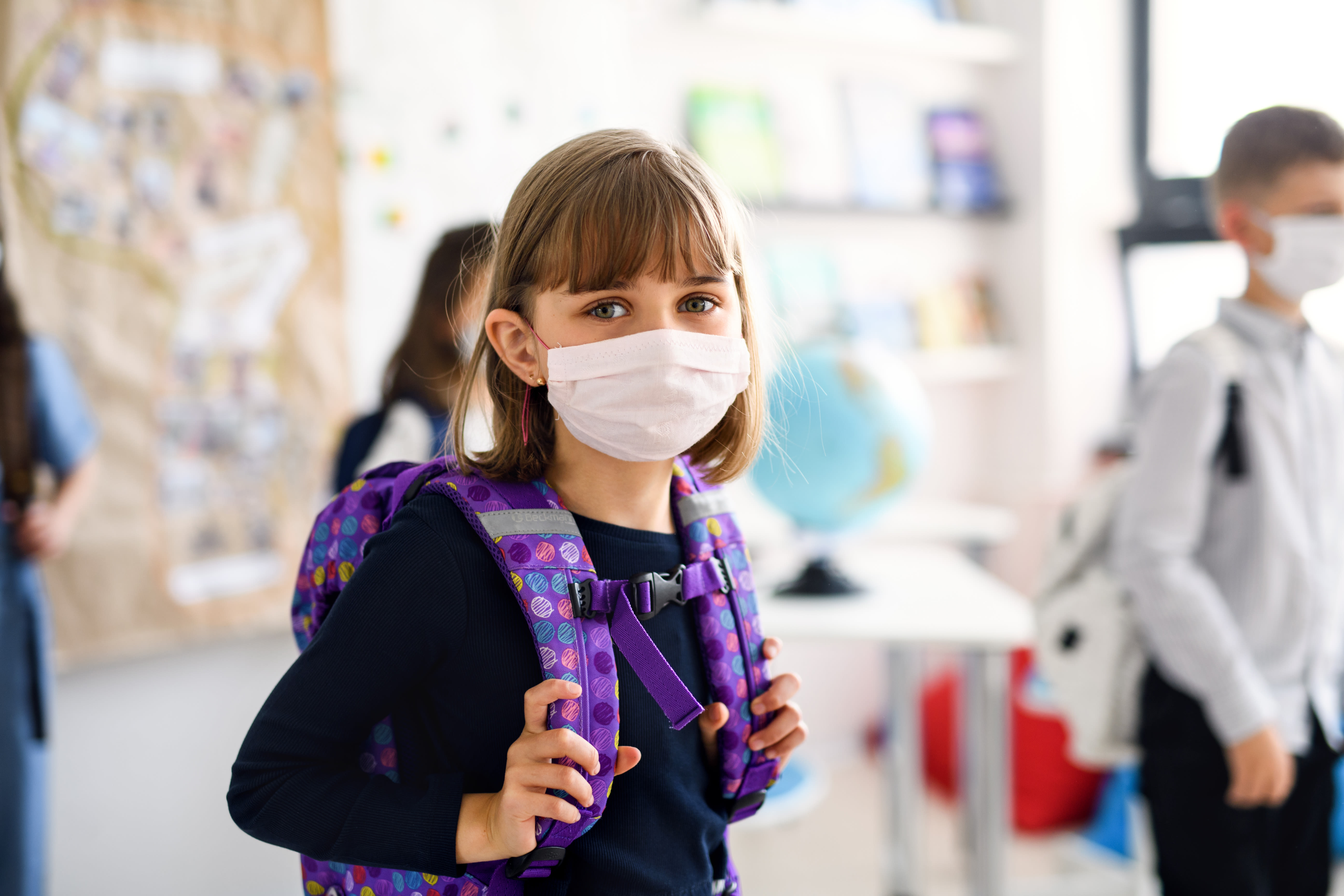Busting Covid-19 Myths with a TikTok-Famous Immunologist
@dr.noc The same trend was true for hospitalizations. #covid19 #covidvaccine #coronavirus
♬ original sound - Dr Noc, PhD 🧪

Dr. Morgan McSweeny, a.k.a. "Dr. Noc"
Image: Courtesy Photo
Dr. Morgan McSweeney studies immunology and pharmaceutical sciences in southwest Florida. He's a scientist who works on the development of monoclonal antibody-based therapeutics for respiratory infectious disease—influenza, RSV and, now, Covid-19. His work has been featured in The New York Times, Time magazine, World Economic Forum, and on NBC and Fox, among other outlets. He also grew up in Sarasota and still visits.
Since February 2020, McSweeney has taken to social media to debunk some of the myths surrounding Covid-19. He calls himself "Dr. Noc" and has amassed more than 600,000 followers on TikTok.
During his time online, McSweeney has also come across a lot of misinformation that viewers take to be truth. So we asked him to bust some of the most common Covid-19 myths he sees.
Myth: The vaccine causes infertility.
"This is not true. The idea that the vaccine causes infertility or miscarriages is not based on scientific evidence and is rooted in a poor understanding of virology. Although safety studies are ongoing, the data published to date from pregnant people who have chosen to receive a Covid vaccine have shown good evidence for both safety (for the pregnant person and the child), as well as efficacy (in reducing risk of infection). In contrast, there is no evidence to suggest that the Covid vaccines would impact fertility or pregnancy--there is not even a convincing theory for how they might do so."
"People are more likely to watch a two-second video clip with inflated information vs. a three-minute video with a scientific explanation and clinical evidence. People are sharing videos that are not necessarily true, but they become viral because truth does not matter to social media algorithms. This is how misinformation is spread."
Myth: The vaccine contains the live virus.
"The short answer is no, the vaccine does not contain SARS-CoV-2. The mRNA vaccines (Moderna and Pfizer) doesn't include any virus at all. Their only ingredients are some sugars, salts, fats and the mRNA. All of these things are degraded by your cells within a week or two, and then the vaccine is totally gone from your system (but the immune cells that it trained to fight Covid stick around much longer). The J&J vaccines does contain an adenovirus, which contains germs related to the common cold. The difference, however, is that they used a special type of adenoviruses cannot replicate once they infect your cells, so it can't cause an actual infection. The vaccine works by using that safe adenovirus to mimic part of the coronavirus's spike protein, which trains an immune response against Covid-19 in the body. So you are not getting an infection from the coronavirus when you get vaccinated at all."
"This is similar to the misconception about the flu vaccine. People think you can get the flu from the flu vaccine, but you can't. However, it takes one to two weeks post-vaccination to become protected, so you can technically get infected with the flu in that time period—even within three days of getting the vaccine."
Myth: You can't get Covid-19 after being vaccinated.
"You can get Covid even after getting vaccinated, although it is rare. Within the first eight to nine days post-vaccination, you have little to no protection against Covid-19. Health officials have found you have built up enough immunity from the vaccine about two weeks after vaccination. This is why you can still get Covid within that vulnerable time after the vaccine.
"This is also why we are seeing breakthrough cases now with the infectious variants. Breakthrough cases can still happen, but vaccines reduce the risk of them happening and the risk of getting a severe case of the virus."
"No vaccine gives complete, 100 percent protection. However, if getting the vaccine reduces your risk of a severe outcome to one-tenth of what it would be without the vaccine, that's a big victory. If it cuts your risk of infection in half, or to one third, that's also a big success, even if there's still a chance of infections."
Myth: The vaccine causes Covid-19.
"I have been getting a lot of comments on my videos from 'anti-vaxxers' or those who are vaccine-hesitant, saying you can still get infected even if vaccinated, and that therefore the vaccines aren't working. Vaccines significantly reduce the risk of hospitalizations and death. There are still rare chances of becoming infected after vaccination, but your case will likely be less severe. This doesn't mean they aren't working. Commenters sometimes have a black-and-white type of thinking, which is not the way this virus should be approached."
Myth: New Covid-19 variants are more virulent among younger people.
"Vaccine uptake has not been equal across age groups of the population, with highest rates of full vaccination among older adults and decreasing rates of full vaccination status with younger people. The most extreme case is, of course, children under 12, who don't have access to vaccines at all. That being the case, it is incredibly difficult to tell if the increased prevalence of infections in younger people in recent times—for example, with the with delta variant—is driven by an actual increased virulence among younger folks, or if it's simply driven by the fact that younger people are less likely to be fully immunized.
"We know that the Covid vaccines actually reduce your risk of being infected at all—they don't simply reduce your risk of severe disease. So the difference in immunization status is certainly contributing to that—I would guess to a major extent. The delta variant is probably not all much more infectious for an unvaccinated young person vs. an unvaccinated older person."
Myth: Being vaccinated increases the risk of forming new variants.
"This is not the case. Vaccines reduce the risk of infection. New mutations only happen when they are replicating within a person. There are fewer opportunities for the virus to mutate if more people are vaccinated."
Myth: Wearing a mask is dangerous because you'll get carbon dioxide poisoning.
"This is a big one that I hear, but it is not true. Look at people who wear masks professionally for long periods of time, before Covid-19 was an issue. They are not developing diseases because of it. Their CO2 and blood oxygen levels remain the same over time. This goes for people wearing all kinds of masks—N95s, surgical masks and cloth masks.
"The benefits of mask-wearing are frequently misunderstood. Masks provide protection from inhaling other people's germs, reduce the emission of droplets and reduce the risk of catching the virus, in combination with social distancing. There is very little cost associated with wearing the mask in a public setting."
Myth: Kids can't get Covid, so they don't have to wear masks.
"Kids can get Covid and spread it to other people. The risk of severe disease as a result of infection is lower than in adults, but it increases as age increases. There has also been a recent uptick in risk for the youngest of children. They can develop multisystem inflammatory syndrome (MIS-C), can die or have long-lasting syndromes as a result.
"There are things to consider when children return to school to keep them from getting Covid and spreading it, especially since many under the age of 12 will most likely still be unvaccinated. Proper ventilation, air purifiers and social distancing and mask wearing will help. The delta variant is a concern among children, especially if they're unvaccinated, so continuing these protocols is important."
Myth: You can't get Covid twice.
"This is false. There are people who get Covid twice. It all depends on the person's level of immunity after first infection. Immunity varies from person to person. There are four main groups of people we see with varying levels of neutralizing antibodies, or antibodies that protect you from disease.
"The first group is people with strong antibody responses that persist for six months or longer after infection.
"The second is those who do not build up strong antibody responses at all.
"The third is people who develop strong antibodies early on and wane rapidly, within three months.
"The fourth is people who develop strong antibodies early on and they wane slowly, over a six-month time period.
"It's the same course of disease, just different levels of immunity, or protection from getting Covid again. The good news is, if you've had Covid and one dose of the vaccine, that is the best case of immunity. You will have the strongest B-cell and T-cell responses, which reduce the risk of future infection. This scenario is better than getting Covid and not being vaccinated at all."
Myth: The live virus is present on Covid-19 testing swabs.
"There is no live virus on test swabs. On the contrary: test swabs are sterilized with chemical and non-chemical agents to help ensure the cleanliness and safety of the testing material. There are a group of conspirators saying that the chemicals used to sterilize swabs are still present and dangerous to human health. But what those people don't know is that an important part of the sterilization process is removing these chemicals once swabs are cleaned."
"There are regulations around testing swabs that prevent toxic items from remaining on the product after the cleansing process. Neither live viruses nor dangerous chemicals are present when you get tested."
Myth: Testing sites exaggerate the positive case numbers.
"Being able to critically decipher Covid data is like a full-time job. If you are only scanning data for 20 to 30 minutes, it will come across as overall harmful or negative. Good, accessible fact-checking is important to make sure everything is correct. Without much experience or much time spent on research, you can land on an incorrect conclusion."
In conclusion: The most dangerous myths are the sneaky ones.
"There are some myths that, unfortunately, spin the truth by inflating numbers or exaggerating outcomes," says McSweeney. "Like the ones about getting Covid even after vaccination. While it can happen, it's not happening in large numbers like some online videos are saying."
"With Covid-19, we are seeing the process of scientific exploration in real time," he continues. "This virus is not something that has been studied for 30 years. We are continuing to learn new things about it. The problem is the public latches on to initial scientific conclusions and think we are hypocrites when new information comes out. But this happens all the time in all fields of medicine. Studies are done to gain more evidence. Science is cyclical."
Follow Morgan McSweeney, or "Dr. Noc," on TikTok or Instagram.



